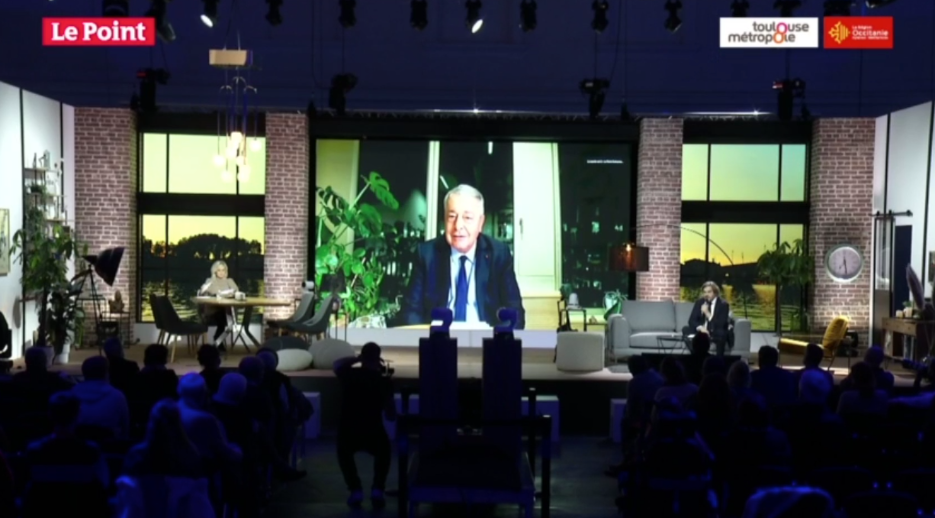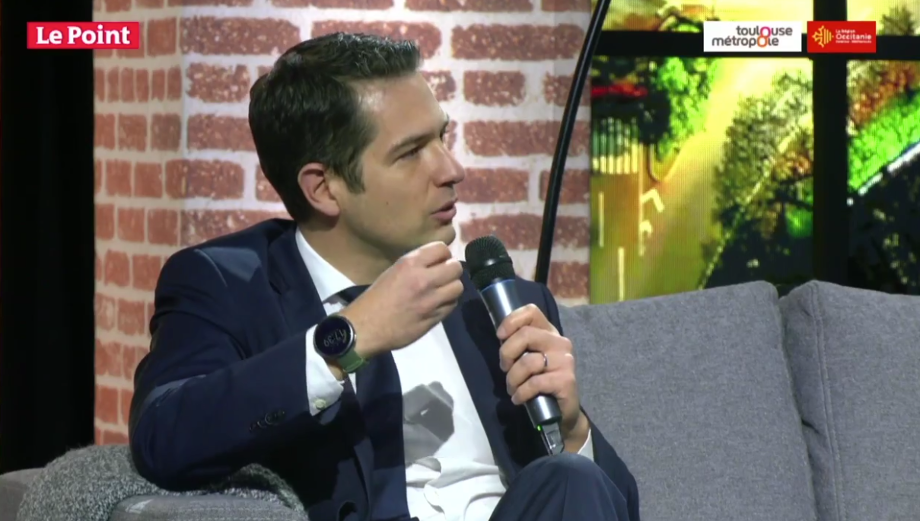Aimed at the economy and businesses from 25 November to 27 November, Futurapolis Planète 2021 focused on new economic paths, on the theme: “A whole future to invent”. Veolia offered its expert point of view on ecological innovation and on cities facing the climate challenges. This event was organised in Toulouse (France) by the magazine Le Point.

Decontaminate by assigning a price to pollution
Antoine Frérot's interview on "Large groups facing the challenge of change" began with the commitments reached at COP26. Veolia CEO confirmed that these conferences play a major role, whatever the headway made, because they help the international community move forward. Asked about the price of CO2, Antoine Frérot reminded everyone of the challenge: we need to make sure that those who pollute clean up by imposing "the polluter pays" principle. Assigning a price to carbon would make it possible to insource the cost of pollution: when polluting costs more than decontaminating, the polluter would be better off cleaning up.
The price of carbon has increased significantly, but many sectors are not yet subject to it. A high carbon price would make cleaning up solutions such as the use of recycled plastic more competitive. Regulations should also be introduced to speed up their deployment. For example, setting a minimum percentage of recycled material incorporated in the manufacture of new products would speed up recycling. But to encourage manufacturers to choose recycled materials, they need a guarantee of continuous supply, traceability and stabilised prices. We must therefore create a mix of regulations, incentives and a price for pollution.
Recycle batteries, smartphones, and solar panels
For electric vehicle batteries, Veolia needs to meet two challenges: the dismantling of hazardous waste and the complex extraction of rare and expensive metals. Today, the Group recycles all the batteries from which it extracts rare metals such as lithium and cobalt. It is linked up with Solvay and Renault to industrialise their recycling. In 2030 in Europe, it is estimated that one million batteries will have to be recycled each year. Recycling plants will be set up near the sites of car manufacturers to supply them with locally produced raw materials.
For smartphones, recycling electronic cards remains complex, but Veolia is making progress. However, a large number of solar panels are now at the end of their useful life: Veolia already operates the world's first plant for a complete recycling of photovoltaic panels in Rousset in Provence (France).
Combining economic development with ecological transformation is a flourishing profession
For young people, environmental professions are flourishing because pollution is no longer tolerable for the planet, and the scarcity of natural resources entails that they must be preserved. The reuse of materials is becoming a concern of consumers. Veolia recycles wastewater. It also transforms wastewater sludge into fertilisers or proteins to feed livestock... Economy and ecological transformation are compatible because combining them will create a large amount of work. But it will be necessary to start with cleaning up, otherwise pollution will hamper the economy. The Chinese government has understood this well; it now requires manufacturers to clean up. Economic activities will have no choice: either they respect the planet and nature, or they will have to stop.
Faced with the intensification of extreme weather events, solutions already exist
Pierre Ribaute, Managing Director of Water France at Veolia, took part in the debate on “Culprits, victims and innovative: cities facing the climate challenge to come”. For him, if we look to 2040, in France, surface water resources will see their levels drop in summer by 20% and groundwater recharge by 30%. This will increase the concentration of contaminants. In south-western France, river flow will drop by 40% to 60%.
But solutions do exist: for example, to preserve the resource, territories are installing sensors that measure the distributed water and help the monitoring in a supervision centre to reduce leaks.

Wastewater can be another resource. In Spain, 15% of wastewater is reused for agriculture and industry. Spaniards made these investments in the face of the need to preserve their economic fabric. In twenty years, France could find itself in a similar situation. In Aureilhan (Hautes-Pyrénées), Veolia is already irrigating corn fields with treated wastewater. In Narbonne, it irrigates 80 hectares of vines .... Often, water is not where it is needed or when it is needed. This is precisely the issue of recharging groundwater. In the Jourdain project with Veolia, Les Sables d'Olonnes (France) will reuse wastewater by desynchronising the cyclicity of the water thanks to a natural downstream reservoir. In Catalonia (Spain), Veolia also recharges the groundwater on a deferred basis. In France, in the Bièvre valley, natural spaces regulate heavy flooding threatening industrial activities. With all these projects, Veolia is implementing solutions for the ecological transformation of its customers for a better quality of future life.
CO2 capture: may solutions generate negative emissions?
Replay of Veolia's interventions (in French only): Antoine Frérot in “Large groups facing the challenge of change” on 25 November and Pierre Ribaute in ”Culprits, victims and innovative: cities facing the climate challenge to come” of 26 November

